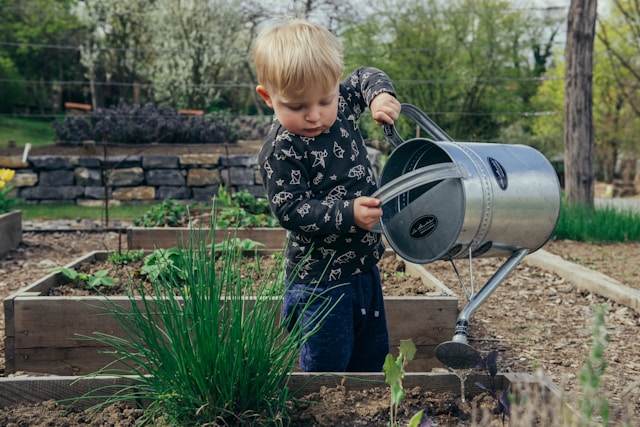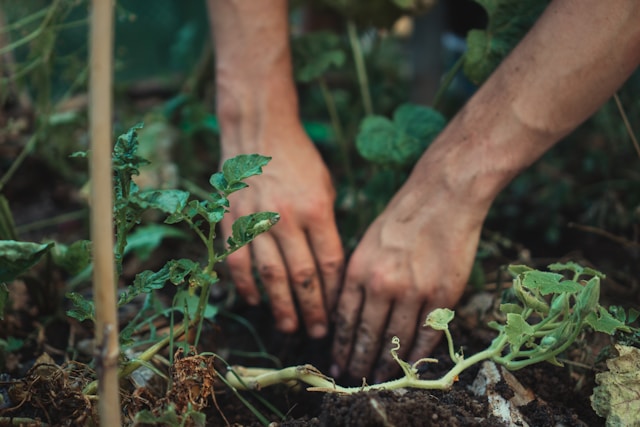Gardening is one of the best things you can do in your life, offering an opportunity to be active and move around while completing a task. The older you get, the trickier it will become to garden effectively. It’s more than just planting items in the ground – there’s more you need.
If you’re looking to understand how to garden as a senior with your garden, you’re in the right place. There are several green thumb strategies you can utilize to ensure your garden comes out as healthy as possible. The more you know, the easier for you or a loved one to know what you’re getting into before purchasing plants.
1. Create Raised Beds
According to one study, it isn’t uncommon for seniors to struggle with back pain from inactivity or as a natural sign of aging. To keep your green thumb intact, it’s helpful for seniors to create raised beds for gardening. This step will allow simple access to beds in the year.
It can also be trickier for many seniors to see over long distances, which means raised beds offer more of a chance to see the plants up close and do whatever is necessary to keep them in the best condition. From watering to adding enough soil, there are ample steps for plants in beds to stay alive. Risen beds are your best bet.
2. Care Early or Late
Another excellent tactic when creating a green thumb-focused bed as a senior is to do most of the hard work in the morning or evening. Especially in the warmer times of the year, these are moments when it won’t be as hard to get outside and ensure your plants are thriving. Try to do as much in the morning or at night.
Of course, seniors should also be ready to do a little work in the middle of the day. However, it’s possible to get a good chunk of it done when the temperature is gentle on both you and your plants.

3. Have a Partner
Many seniors strive for independence, and thus gardening alone can be the norm. However, for the best access to a green thumb garden, it’s best to take on the activity with a partner. They will help you keep your plants in check while ensuring you remain safe.
Also, having a partner who knows what they’re doing is an excellent way to improve your green thumb. They can provide tips, assist, and help you on your journey to becoming a professional senior gardener. (Plus, this is an excellent opportunity to spend time with grandkids!)
4. Create a Level Pathway
Another significant item in retaining a green thumb is to form a level pathway in your garden. Many seniors struggle with balance, and tripping over your garden will make it tricky and even dangerous to take care of your beloved plants.
Although a level pathway might not seem a big deal, it is. It will make a difference in what you can do for your plants. You can either build your own, or consider hiring a local company–any money you spend will be worth it!
5. Avoid Picking Plants With High Maintenance
Next, ensure you don’t pick plants with high maintenance. The easier the plants as a senior, the easier it will be to keep them alive. Always start small when choosing plants, and never go for the ones that require significant upkeep. They will die quickly and are impossible for seniors to keep up.
6. Seek a Green Thumb Expert
If you’re setting out on your green thumb journey, it never hurts to contact an expert. These people know what they’re doing when to plant certain items, and more. They can also teach you the best methods for caring for plants. Whether this person is a family member or a friend, they should know what they are doing. The information about having a green thumb should assist slightly.
7. Grow Food You Can Use
Another helpful item to remember is to grow food you can use as a senior. While it might be exciting to try to foster something like a durian fruit, are you going to use it? Going to the grocery store as a senior can be tricky, so try to grow food you can use in your kitchen.
According to one study, the better the food you eat, the longer a shot you have at longevity. Growing and eating plenty of fruits and vegetables will assist with this lengthened lifespan. We recommend starting with tomatoes, bell peppers, and zucchini, all of which are easy for a beginning gardener to grow!
Related: The Best Plants to Grow for Your Gardening Zone

8. Add a Bench for Sitting
Another tactic to improve your green thumb is to place a bench in your gardening area for you to sit on while you’re participating in the process. It will allow you to remain in the garden for far longer, sitting down and getting comfortable as you plant, water, and more.
Many seniors struggle to stand for long periods, which can impact their gardening ability. A bench will make a difference if it’s close to the core gardening beds.
Related: The 7 Best Gardening Tools (For Senior Gardeners)
9. Have a Positive Attitude
According to one study, having a positive attitude towards life can lead to a longer lifespan. In several participants, a positive attitude was well-associated with expanded life. Thus, we think it’s always healthy to have a positive attitude towards everything – even gardening that’s going horribly. No matter what happens, try to make something good out of it.
At the beginning of a gardening experience, it’s easy for things to go wrong, especially if you don’t know what you’re doing. Always keep your eyes focused on the best things happening, rather than the worst, for the best results on the go.
Gardening Successfully as a Senior
There are ample things you can do as an older adult to ensure your plants have the best shot at survival, all while keeping your body safe. We advise items like creating raised beds, creating a level pathway for transitioning across the garden, holding a positive attitude, and more. These will all lead to success.
We hope this information is helpful! It can be tricky to garden successfully as a senior, so these strategies should benefit your growing process. No matter how old you are, it’s always possible to adopt a green thumb.
You May Also Enjoy: How to Learn About Gardening (Gardening Beginner’s Guide)


















